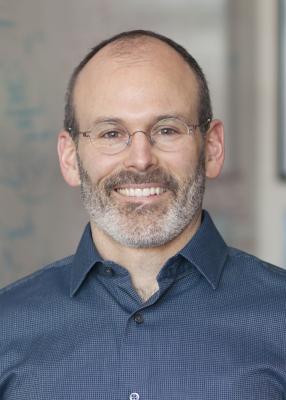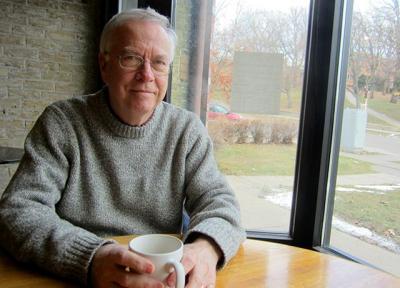
Friday, November 18, 2022 @ 1:00PM (Eastern)
Duration: 1 hour 30 minutes
The role of emotions in understanding and treating chronic medical conditions is unclear. Hypertension was long considered a quintessential mind/body disorder, yet decades of research failed to confirm that emotional distress causes hypertension or that stress reduction techniques can alleviate it. The role of repressed emotions has rarely been considered. This talk presents data that strongly implicate the unsuspected role of repressed emotions in the genesis of hypertension and many other prevalent chronic medical conditions, such as chronic fatigue syndrome, inflammatory bowel disease,…

Friday, October 28, 2022 @ 10:00AM (Eastern)
Duration: 1 hour 30 minutes
This talk will be a solid introduction to CBT for Insomnia, giving clinicians a good understanding of how to implement this treatment in their clinical practice. How to use CBT-I with current psychotherapy patients will be addressed in the context of depression and anxiety, and when and how to get further specialized training will be discussed. Although women and insomnia will be the focus, CBT-I basics will apply to all adults. When to refer out for a sleep study and/or more specialized assessment will be addressed. Speaker Shelby Harris, PsyD, DBSM, is a clinical psychologist and sleep…

Friday, September 30, 2022 @ 10:00AM (Eastern)
Duration:
Most modes of psychotherapy believe to have “parts” is pathological. NOT in IFS. In IFS, the idea of multiplicity of the mind is normal. Every part has a good intention, and every part has value. All clients have the ability to heal themselves if they listen to their parts. IFS is a very powerful tool for clinicians. Once you see it in action, you’ll be hooked! And you’ll want to immediately incorporate it into your practice. In developing IFS 30 years ago, creator Richard Schwartz, Ph.D., realized that clients were describing experiences with various parts, many extreme, within themselves.…

Friday, July 15, 2022 @ 10:30AM (Eastern)
Duration:
Chronic pain exacerbates depression, anxiety, and emotional instability due to the perceived stress that impacts the body on a physical and chemical level. Pain, such as low back pain, is a common problem. For example, in 2017, nearly 65 million Americans reported a recent episode of back pain and, as a result, were limited in certain everyday activities. Mindfulness-Based Stress Reduction (MBSR) and Mindfulness-based interventions (MBIs) offer an alternative for patients and therapists as an effective treatment for pain. Physical pain is unavoidable, but meditation practice can ease the…

Friday, May 20, 2022 @ 2:30PM (Eastern)
Duration:
Traumatic pathological relationships are relationships with a partner with Cluster B and/or psychopathic behavior. Pathological Relationships have long been undifferentiated from traditional domestic violence. Although we have had ‘battering typologies’ based on Cluster B/psychopathic behavior, they were not studied for the differences in relational dynamics, the survivor profiles, or the differences in a survivor’s resulting trauma. Consequently, these relationships and their survivors have been approached and treated as an extension of domestic violence. But should they be? Sandra L.…

Friday, April 22, 2022 @ 10:00AM (Eastern)
Duration:
Helen Fisher will be returning to WMHC to conduct our second case consultation. She will be providing feedback on a case that one of our members is presenting about a male client who has trouble finding a partner for a committed relationship. Helen Fisher’s website is: https://theanatomyoflove.com/ .

Friday, March 25, 2022 @ 10:00AM (Eastern)
Duration:
This event is approved for 1.5 CE contact hours (Lecture 10:00-11:00 am; Question & Answer 11:00-11:30 am) Can anxiety and worry be perpetuated like a habit? Anxiety levels are increasing individually and collectively in modern day. Faced with uncertainty, an overabundance of information (and misinformation), among other challenges, our minds struggle to keep up. Our brains default to old survival mechanisms to help us deal with anxiety, which can lead to the development of unhealthy coping habits and ironically feed anxiety as a habit itself. Drawing on his clinical work, neuroscience…

Friday, February 25, 2022 @ 9:00AM (Eastern)
Duration:
A WMHC member will present a transcript of work with a high conflict couple, and our guest speaker will give direction/feedback on the case. We will also take input from the live audience. If you are planning on attending and would like to participate, please review the case transcript and Treatment History on the Members Only events page. George Faller Prior to a career in the field of mental health, George Faller MS, LMFT spent 20 years as a NYC Firefighter and NYC Police Officer. His experience as a FDNY Peer Counselor, particularly following the events of…

Friday, January 28, 2022 @ 2:00PM (Eastern)
Duration:
There is an infinite amount of intuitive and empathic wisdom that we cannot access through logic alone. Many of us have felt it at least once. The linear mind plays an essential role in understanding the analytical knowledge specific to diagnosis and treatment in the healthcare profession. Now, we must invite our nonlinear, intuitive mind to create a complete picture of the person we are trying to help. Judith Orloff MD, a psychiatrist on the UCLA clinical faculty, empath, and New York Times bestselling author of The Empath’s Survival Guide: Life Strategies for Sensitive People…

Friday, December 3, 2021 @ 2:00PM (Eastern)
Duration:
Speaker Bill Doherty, Ph.D., is a Professor in the Department of Family Social Science at The University of Minnesota. He directs the Minnesota Couples on the Brink Project, which developed “discernment counseling” for couples on the brink of divorce, and The Citizen Professional Center, which does community engagement projects on health care and divisive public issues. Following the 2016 U.S. Presidential election, he co-founded Braver Angels. This citizen initiative uses couples therapy principles to bring conservatives and liberals together to counteract political polarization and restore…